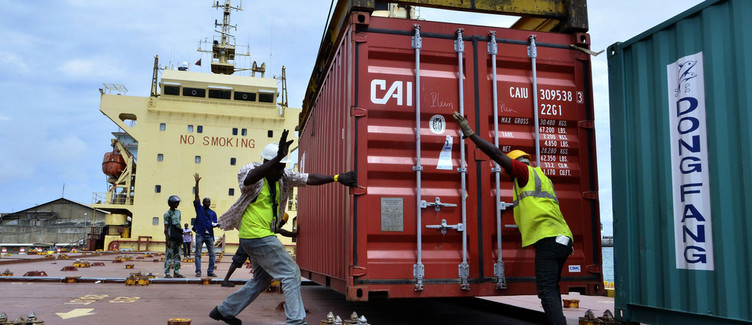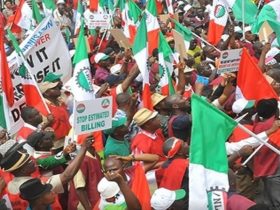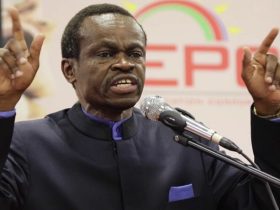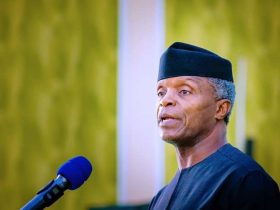It all began when the European nations saw Africa as ripe for the taking. Some Europeans argued that by colonizing Africa, they were also exporting civilization to a continent, which they regarded as evolutionarily backward and undeveloped. It was a European responsibility – they claimed to feel, to act as a “trustee” of Africa – until Africans were morally “mature” enough to govern themselves.
However, colonization was (in reality) driven by commercial interests. Indeed, Europe would benefit enormously from its exploitation of African resources. Hence, the subsequent de-colonization process revealed the one-sidedness of colonial rule. Moreover, the departing colonial powers left behind economies that were designed to benefit their previous owners. Crops grown, for example, required processing in Europe, while the departing powers also left behind them few Africans equipped to lead (their) newly independent nations. Contrarily, others argue that for all the injustices of colonialism, Africans have themselves become members of a single Global Economy characterized by “institutions and principles such as representative democracy, judiciary, banking” and “factories,” along with “Africans and other non-westerners who have to master these new social relations in order to strengthen themselves, as well as benefit from the advantages”.
Nonetheless, both African experience and the Global Markets Index have shown how Sub-Saharan Africa (one of the last regions of the world largely untouched by ‘informal imperialism’), as currently – and unreasonably, “attractive” to Europe’s ruling elites for economic and ethnic reasons. Undoubtedly, during a time when Britain’s balance of trade showed a growing deficit (with shrinking and increasingly protectionist continental markets due to the Long Depression (1873–1896)), Africa offered Britain, Germany, France, and other European nations an open market that would garner a trade surplus: a market that “advantaged” the previous colonial powers in unacceptable ways. Britain, for instance, like most other industrialized countries, had long since run an unfavourable balance of trade (which was increasingly offset, however, by income from overseas investments) in its long-term economic dealings. All unveiling the truth that Africa is not suffering from an “integration deficit,” as much as from poor integration within international, as well as transnational, trade. Assuredly, nearly all African countries are members of the World Trade Organization (WTO) – numbering 43 out of its 162 members. Still, African countries represent over a quarter of this organization’s stakeholders at the very same time as severe structural imbalances remain.
Stated so, the story of Africa’s development is oscillating – albeit at a pace dictated by Western Powers. Clearly, six of the world’s fastest growing economies are in Africa. Furthermore, democratic governance has been strengthened across the past five decades; enabling a platform for stable growth and prosperity in most parts of the continent. What is more, long before Barack Obama addressed the African Union (the first US President to do so), this song was chorused “Trade not Aid”. Moreover, he made sure to bring this topic up by saying:
“So many Africans have told me, we don’t want just aid, we want trade that fuels progress.”
And yet, while trade might be the gateway to development, African statistics aren’t too impressive: especially when one recalls that the biggest opportunities for growth among African countries continues to be nearly dormant. Comparatively, in 2014, in Europe, 69% of exports were to other countries inside its own trading zone. In addition, Asian figures stood at 52% whilst in North America at 50%. Thus, Africa had the lowest level of intra-regional trade, at just 18%.
There is, of course, an underlining question regarding “What Africa is worth in the international trading system” today? But, most attempts to answer this question have simply raised a number of extra conundrums. Thusly, we learn the International Centre for Trade and Sustainable Development, in their analyses and news on African trade and sustainable development “BRIDGES AFRICA,” reports that:
Despite popular opinion, Africa has been very active on the international trading stage, though results have been disappointing. At the ministerial conference in Bali, Indonesia, in 2013, African countries failed to push for their needs. After progress and losses, what is the place of Africa in the multilateral trading system as the continent heads into the WTO ministerial conference in Nairobi, Kenya?
A comment fueling criticism by its suggestion that Africa is not making sufficient efforts to take part in international, or transnational, trade. Even though, contrarily, African countries merit a spotlight on their (significant) progress to open-up to trade. Each issue reminiscent of historical double-standards regarding every transaction with the so-called Dark Continent.
In which case, Africa’s inability to benefit from global transactions can be explained by its integral position within international trade offering – as this does – little in the way of returns, whilst producing little surplus internal wealth. Curiously, its “status” has become that of a supplier of basic commodities and raw materials, thereby restricting it to the bottom of the international “value chain.”
All in all, my candid opinion is that Africa nations need to find ways to trade among themselves. It is their joint responsibility to rise to the challenges of the 21st century and ensure they take opportunities for a more economically viable future. As a continent, it is imperative that Africa, herself, sets the basis for any discussion on how to make the multilateral trading systems efficient so as to help individual countries become engines for their own development. Hence, as the world is rushing towards regional and mega-regional trade agreements, it is vital to review the place and role of the African continent in all of its permutations, let alone its denuded dealings with America, Europe and, dare one say, Central Asia.












Leave a Reply